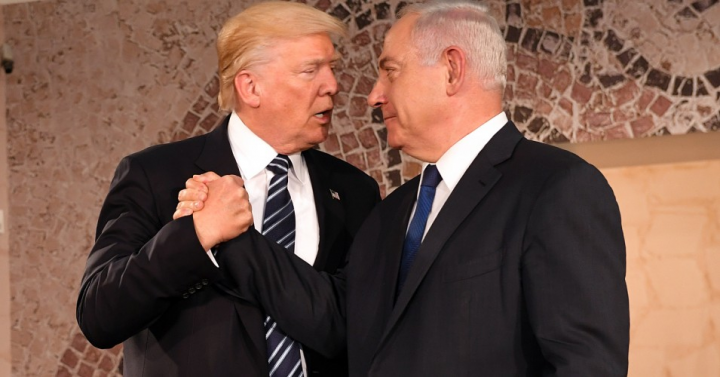Polarity in Fast-pace Political Times
By Gabriela Jurosz-Landa
Once again, icons are falling; only this time, it is in the Jewish-Christian hemisphere. One is reminded of the bringing down of Hussein, Gaddafi, Moubarak, and other dictators. However, what comes after? Let us not forget what happened after these leaders were removed. Are their countries better off without their strong grip on their society? These leaders were criminals; however, they also held their countries together, avoiding a different kind of fragmentation and crimes. Outside governments intervening in their politics could not always foresee that, as is obvious when looking at their country’s situation today.
Whomever we vote for and put on the throne next, we should train ourselves in foresight. The long process before an election is a loss of time and energy, if all it brings forward is polarization and a hope for change. Instead of calling for the next best thing, we should ask and allow for more true reflection in the media, social discourse, and ourselves. Too easy do we fall into the dangerous stereotypes of good and evil as conditioned by our age-old confession-specific Bibles, as well as the 20th century Cold War doctrine.
The way out of the dichotomy of extremes and polarity is, of course, diverse information, discourse, and interest in “the other”—opinion, subject, person, culture, and religion. Our viewpoint must not be the only truth once we allow the other to have a chance to lay out their deeper understanding of a matter. Listening instead of labelling. In the U.S., when has a democrat sat with a republican and permitted himself to discuss the others’ point-of-view? Both sides turn talking politics into a taboo.
The fashion of quick stereotyping without sufficient background information does not happen only in politics, of course. I am thinking of the recent dispute about the 2019 Nobel Prize of Literature given to the Austrian novelist Peter Handke. For weeks now, European papers have been torturing the fact that Handke spoke out for Serbia after the 1990s war in Yugoslavia, and even attended and spoke at war criminal Milošević’s funeral. Nobody asks why he did that, and few people know that Handke’s mother was Yugoslav, and that he may have some deeper insight than most people informed by the media alone.
Quick conclusions are the crime of the digital era. We think of our societies as advanced and educated and still, fall back into medieval behavior calling for the guillotine. Jacques Ellul (1912-94) demands the strengthening of our moral principles to be able to face the technological challenges that lie before us. The current political outbreaks all around the world are a sign to pull ourselves together and focus on our humanity. One may wonder if the degree of civilization is surpassed. Sensitivity and ritual have dissipated, and materialism and now violence are taking over our realm of behaviour. Though, a new interest in ritual life is on the rise, and it becomes visible on both sides, the radical, such as the neo-Nazis, and the meditative. People looking for their roots travel into the Amazon to dive down into their unconscious and to learn more primary forms of living. However, tending to this extreme does not necessarily make them more willing to be open to listen to their opponent. Polarizing does not take us closer to understanding the other side of the medal, and so perhaps we need a new wave of cultivation, a gentle, reserved, and weight-out manner, perhaps one of the 1930s when “gentleman” was not an awkward feminine description of maleness.
Instead of driving things to extremes, we should focus on the middle ground. In politics, that may mean to establish controlling forces of the institutions in power. The Czech Republic just created such a controlling force in the form of the movement “Milion chvilek pro demokracii” which translates into „A Million Moments for Democracy.“ The organizers call themselves the watchdogs of their government. The movement held a very successful event combining the celebration of the anniversary of the Velvet Revolution with a peaceful demonstration against president Miloš Zeman and his prime minister Andrej Babiš. While the president tends closer to Russia and China than to his own country, the prime minister thinks the country is his private golf course and misuses money given to the Czech Republic by the European Union.
Watchdog agencies stand outside of the political party race and are able to see problems far along before they occur. They focus on issues of political injustice, and can inform more accurately than social media often does. Catching people’s concerns, they are a truthful source of information for the public, and can intervene before it is too late. These institutions also hold the memory of events that the commoner so conveniently forgets in the rush of daily life and twitter posts. Bolivia, Chile or Lebanon are current examples of a lack of third-party-watching and reporting. Yemen even more so. If the USA had had such actors before the 2016 elections, the division of the country, much pain, time, and money could have been saved, and politicians could concentrate on real issues.
Once upon a time, intellectuals filled those shoes. Since they lost this power within society, these new groups of actors may take their place. Maybe once upon a time, the media were to be those watchdogs. Today, however, all the above can only work if the media play a fair game, and stop profiting on the enhanced psychology of a polarized society in the first place. The consequences of hyper societies for the future is alarming.
The Author: Gabriela Jurosz-Landa is a Czech-born anthropologist and art-historian, graduate of Ludwig-Maximilians-University in Munich, Germany, with graduate studies in Vienna and Prague. She has widely published in the field of art and art anthropology and recently put out her research of twenty years about the Maya in Guatemala, published in her 2019 book Transcendent Wisdom of the Maya.










